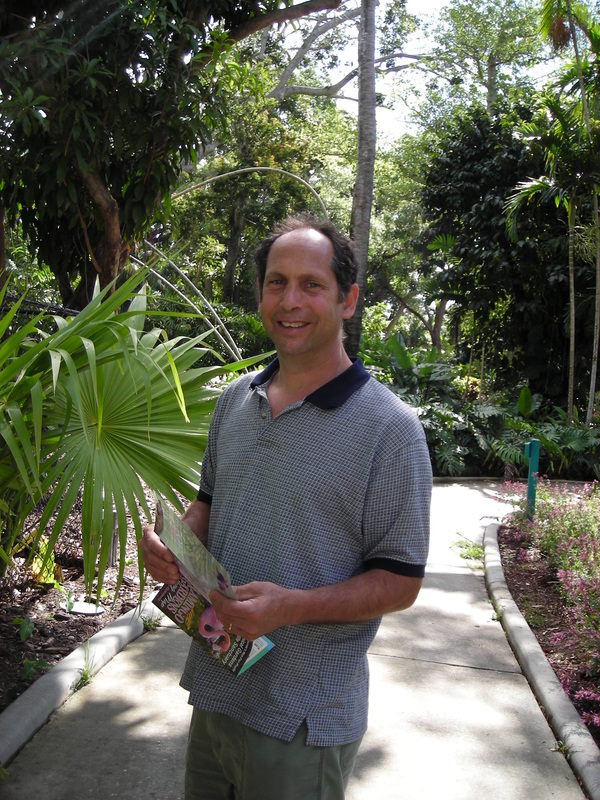Case 20 The Man of Great Strength
Shõgen Oshõ asked, "Why is it that a man of great strength does not lift his legs?"
And he also said, "It is not the tongue he speaks with."
Mumon's Comment
It must be said that Shõgen shows us all his stomach and intestines.
But alas, no one can appreciate him!
And even if someone could appreciate him, let him come to me, and I'll beat him severely.
Why?
If you want to find pure gold, you must see it through fire.
Mumon's Verse
Lifting his leg, he kicks up the Scented Ocean;
Lowering his head, he looks down on the fourth Dhyana heaven.
There is no space vast enough for his body--
Now, somebody write the last line here.
In Zen we talk a lot about discovering the True Self While Shakyamuni taught that we have no permanent individual self (non-atman) in Zen we have redefined the self and ask students of Zen to discover the True Self. This is not in contradiction with Shakyamini's original teachings but rather a rewording of the essence of Buddhism which we owe to the 6th Zen Patriarch Hui Neng. Infact this rewording is a natural outcome of the enlightenment experience which we can see in Shakyamuni's own choice of names. Upon his initial enlightenment experience he changed his name from Sidhartha to Buddha meaning Awakened One. This was an expression of the deep awakeness of the enlightenment experience. Not only is consciousness deeply awakened in all its senses but there is also an awakening to a new understanding. In this understanding there is the understanding that with one's own enlightenment all beings and the whole Universe are enlightened.
Later he changed his name from Buddha to Tathagata meaning That Which Comes and Goes. This is a very strange name. The Tathagata taught that all things are in constant change. Nothing is permanent. And that things come and go according to causes and conditions (the process of cause and effect). It seems that the Tathagata defined himself as this very process we call reality. He didn't see himself as separate from this ephemeral reality we are all part of. So THIS is our True Self. This is just not how most of us think of things.
Last night after the sitting at the Moonwater Dojo the discussion went in the direction of how an enlightened person thinks of himself. We are reading a wonderful book on Japanese Pure Land Buddhism with its emphasis on love within the enlightenment experience One person brought up the fact that in meditation she practices being a disinterested observer and that this is very different from the emotional intimacy with the world that an enlightened person seems to experience. I have read books and talked to practitioners who say that the essence of practice is to find and cultivate this disinterested observer that is not attached to the comings and goings in the world around them. They think of this disinterested observer as the true self. They think that the piece of mind of this non-attachment as enlightenment. With the authority I have from my experience and my lineage as a teacher I have to say that this understanding is wrong. What is wrong is that whoever thinks like this has not taken meditation to its full depth, has not experienced kensho. They still see that inner observer as separate from the world around them.
In the deepest meditation even the inner observer disappears. One becomes literally lost in the practice. It becomes black. But you won't know it because you will just think that the meditation period went really fast. Actually it is not black, it is filled with all the sights and sounds of the world around. It is just not being noted in memory. This is fundamentally different then sleep or dreaming because in sleep or dreaming awareness is turned off and cut off from sensation. But in the deepest meditation one looses ones self in awareness. This is called the Fourth Dhyana Heaven.
For those of you who know something about the Theravada tradition the Fourth Dhyana might be familiar as the Fourth Jhana. This meditative stage is characterized by no thought and perfect equanimity. It is no different from what we in other parts of the Buddhist tradition call samadhi. Jhana is just the Pali pronunciation of the Sanskrit word Dhyana which was transformed into the word Zen in the long trip from India to Japan. In the Theravada path which is much more thoroughly mapped then anything is mapped in Zen the Fourth Jhana is the gateway to the deep insight we call Enlightenment. It is not itself the place of insight, there is no thought in the Fourth Jhana but it must be passed through and looked back upon immediately.
Lowering his head, he looks down on the fourth Dhyana heaven.
There is no space vast enough for his body--
This is where insight arises. This is where one experiences the True Self whose body is as vast as space and beyond. No separation! If we experience this and understand this then we are free to say all sorts of crazy things and become a zen master.
A man of great strength does not lift his legs nor does he speak with a tongue. No eyes, no ears, no nose, no tongue...
The purification of the human mind is like the purification of gold. We heat it under a fire melt it down and pour off the impurities. Again and again we enter the fourth dhyana heaven pour off the impurities of ego reveal the luster of the True Self. We do this again and again so not a speck of ego is remains though in fact a human life is just too short to totally complete the task. But it doesn't matter, our foibles are just Buddha's foibles and we laugh.
The last line:
shhhhhhhhhhhhhhhhhhhhhhh!

 RSS Feed
RSS Feed